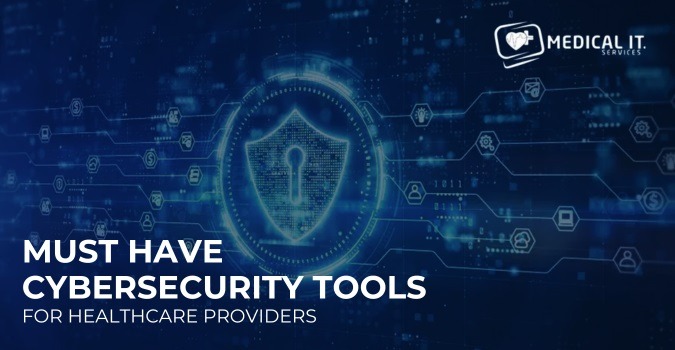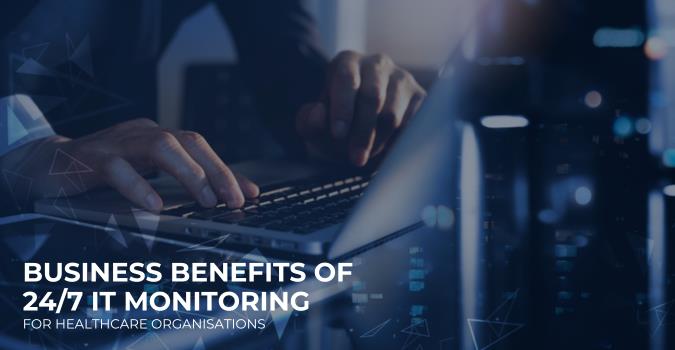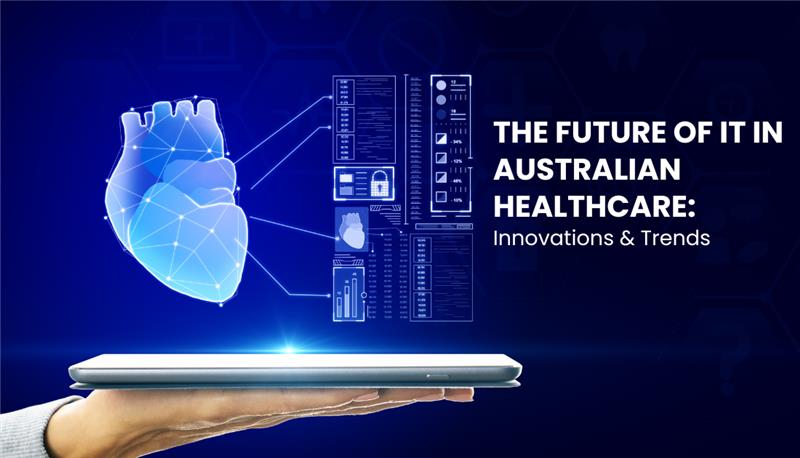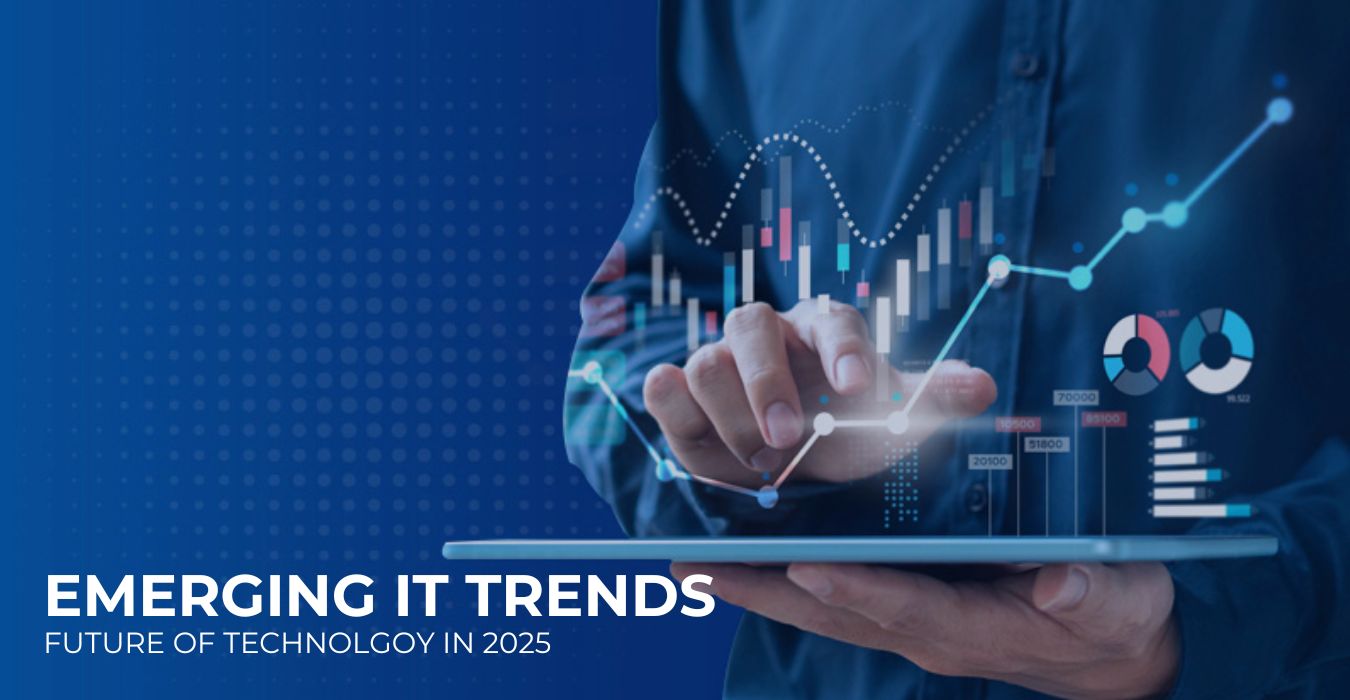Healthcare organisations rely on robust IT systems to manage patient records, facilitate telemedicine and support…

Must-Have Cybersecurity Tools for Healthcare Providers
In the rapidly evolving landscape of healthcare, the integration of technology has revolutionised patient care, diagnosis, and treatment methodologies. While these advancements also brings significant cybersecurity challenges, particularly in safeguarding patient data. Healthcare providers are entrusted with vast amounts of medical information, making them prime targets for cyber attacks. Consequently, it’s imperative for healthcare organisations to employ robust cybersecurity measures to protect patient privacy and ensure data integrity. In this article, we’ll explore essential cybersecurity tools that healthcare providers must have in their arsenal to mitigate cyber threats effectively.
Importance of Cybersecurity Tools
The healthcare industry faces a unique challenge when it comes to cybersecurity. Unlike other sectors, healthcare providers manage a treasure trove of highly sensitive data such as patient records, financial information, and even Social Security numbers. Implementing a robust cybersecurity strategy with the right tools is essential. Here’s how cybersecurity tools play a crucial role:
Protecting Sensitive Data:
Encryption safeguards patient data both at rest (stored on servers) and in transit (being transmitted). Even if attackers breach systems, encrypted data remains inaccessible without the decryption key.
Advanced Threat Detection:
Endpoint Detection and Response (EDR) solutions go beyond basic antivirus by monitoring system activity for suspicious behavior, providing real-time threat detection and response capabilities, allow for faster intervention and mitigation of attacks.
Network Security:
Firewalls and Network Segmentation solutions control incoming and outgoing traffic and isolate critical systems, minimising the potential damage caused by a breach. This ensures that even if one part of the network is compromised, others remain secure.
Compliance Assistance:
Compliance tools can automate tasks and ensure adherence to data security standards like HIPAA. This helps healthcare providers avoid hefty fines and legal repercussions associated with data breaches.
Cybersecurity Tools: Building a Strong Defense
Here are the must-have cybersecurity tools that can significantly enhance the security posture of healthcare organisations:
Firewalls:
Firewalls act as the first line of defense by monitoring and controlling incoming and outgoing network traffic. Next-generation firewalls are capable of deep packet inspection, intrusion prevention, and application-level filtering, providing advanced protection against various cyber threats.
Endpoint Protection:
With the proliferation of connected devices in healthcare environments, endpoint protection becomes crucial. Endpoint security solutions include antivirus software, anti-malware tools, and device encryption to safeguard computers, mobile devices, and other endpoints from cyber threats.
Data Encryption:
Encrypting sensitive data both at rest and in transit ensures that even if unauthorised individuals gain access to it, they cannot decipher its contents. This is particularly vital for protecting patient health information (PHI) and maintaining compliance with regulations such as HIPAA.
Identity and Access Management (IAM):
IAM solutions help healthcare providers manage user identities, roles, and permissions effectively. By implementing multi-factor authentication (MFA) and role-based access controls (RBAC), organizations can ensure that only authorized personnel have access to sensitive data and systems.
Security Information and Event Management (SIEM):
SIEM tools aggregate and analyze log data from various sources across the network to detect suspicious activities and security incidents in realtime. They provide healthcare organizations with actionable insights into potential threats, enabling proactive threat mitigation.
Incident Response and Forensics Tools:
In the event of a security breach, having robust incident response and forensics tools is crucial for containing the incident, mitigating its impact, and conducting a thorough investigation to understand its root cause.
Vulnerability Management:
Continuous vulnerability scanning and patch management help healthcare providers identify and remediate security vulnerabilities in their systems and applications before they can be exploited by attackers.
Secure Email Gateways:
Email remains a common vector for cyber attacks such as phishing and malware distribution. Secure email gateways filter incoming and outgoing emails, blocking malicious content and preventing unauthorized access to sensitive information.
Data Loss Prevention (DLP):
DLP solutions help healthcare organizations prevent the unauthorized transmission or exfiltration of sensitive data by monitoring and enforcing policies on data movement across the network.
Security Awareness Training:
Last but not least, educating employees about best practices and raising cybersecurity awareness about common threats is essential for building a security-conscious culture within the organisation.
Summary
In conclusion, as healthcare organisations navigate the complexities of cybersecurity, investing in the right tools is paramount. By leveraging these cybersecurity tools, healthcare providers can significantly enhance their ability to safeguard patient data, maintain regulatory compliance, and mitigate the risk of costly data breaches and cyber-attacks.
Get Custom-Tailored Cybersecurity Solutions
We at MedicalIT.Services, offers a comprehensive suite of cybersecurity solutions tailored to the unique needs of healthcare providers. From network security to compliance consulting, their expertise can help healthcare organizations strengthen their security posture and protect patient data from evolving cyber threats. Contact us and take proactive steps today to secure your healthcare environment and safeguard patient trust.
Also Read:




